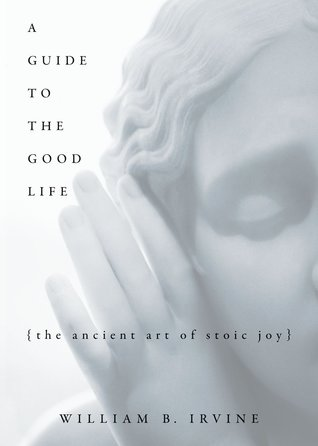DISCLOSURES
This commentary is being provided to you as general information only and should not be taken as investment advice. The opinions expressed in these materials represent the personal views of the author(s). It is not investment research or a research recommendation, as it does not constitute substantive research or analysis. Any action that you take as a result of information contained in this document is ultimately your responsibility. Epsilon Theory will not accept liability for any loss or damage, including without limitation to any loss of profit, which may arise directly or indirectly from use of or reliance on such information. Consult your investment advisor before making any investment decisions. It must be noted, that no one can accurately predict the future of the market with certainty or guarantee future investment performance. Past performance is not a guarantee of future results.
Statements in this communication are forward-looking statements.
The forward-looking statements and other views expressed herein are as of the date of this publication. Actual future results or occurrences may differ significantly from those anticipated in any forward-looking statements, and there is no guarantee that any predictions will come to pass. The views expressed herein are subject to change at any time, due to numerous market and other factors. Epsilon Theory disclaims any obligation to update publicly or revise any forward-looking statements or views expressed herein.
This information is neither an offer to sell nor a solicitation of any offer to buy any securities.
This commentary has been prepared without regard to the individual financial circumstances and objectives of persons who receive it. Epsilon Theory recommends that investors independently evaluate particular investments and strategies, and encourages investors to seek the advice of a financial advisor. The appropriateness of a particular investment or strategy will depend on an investor’s individual circumstances and objectives.










@BrentDonnelly1 Really loved this piece. Spoke to me on so many levels. Early on in my career I was lucky enough to read the Paradox of Choice by Barry Schwartz and learnt about the Hedonic Treadmill.
Great work, thanks for putting it out there!
Great article. Self-awareness is often undervalued, but you more than excel in that area.
I think you may have overlooked reporting on one critical but likely relevant fact.
Weather.
Ottawa is regularly -40 in the winter. Doesn’t matter if you measure in C or F. I lived there for 10 years. And my burning desire was always: have to get out to some place more welcoming to the human condition, meaning any place closer to the equator that to the North Pole. Perhaps a contributing factor to your initial motivation to be a trader was finding ANY source of funding that would allow you to escape from the inhospitable winter environment in Ottawa. Even NYC is an upgrade.
You are only as happy as your most unhappy child.
The problem with evaluating your ‘success/happiness’ using a money ruler is that then you will likely evaluate others based on a money ruler. This is an inescapable side effect of money rulers, and so every interaction with others has the risk of becoming money rulerness. (These evaluations were typical in the primogeniture phase of the UK.) I suspect that, perhaps, then almost no one is immune from unhappiness when using moneyness. And perhaps those not unhappy with abundant moneys must be condemned to endless currency concerns?
Fantastic article. Really captured much of my life as a trader. Money can buy comfort, it cannot buy happiness, which ultimately is a function of a relaxed and content state of mind. Thank you🙏
@BrentDonnelly1 Excellent piece, and wow, do I relate with the first paragraph. My experience was very similar, I never went hungry but there were no ‘extra’ funds. I knew as by osmosis not to even ask about “expensive” field trips.
Thank you for introducing the concept of the hedonic treadmill, I had never heard that phrase before, but it’s something I intrinsically feel to be true.
I think the best piece I’ve ever read about money is this blog post by Dave Winer (who I keep bringing up, but he’s such a great thinker imo, and also very formidable in technology, as a founder of blogging, RSS, and podcasting):
http://scripting.com/davenet/2000/10/19/transcendentalMoney.html
I can’t speak as much to the trading part of the piece since I’m the George Costanza of investing (whatever I do, do the opposite!) – but I found it to be a great companion to Ben’s “Winner’s Tilt” post (or vice versa).
Thanks for this!
Hi Ben - great article, even for a non-trader. I find it very coincidental that our bible study last night centered around Hebrews 13:5 "Keep yourself free from the love of money, and be content with what you have, for he has said “I will never leave you nor forsake you.” Spirited discussion from the teens in the class: what constitutes the love of money? How can we be content when we don’t have enough of it? In response, one adult answered with this question - should we love money & use people, or should we use money & love people? A discussion for another day. Looking within is always a good thing, regardless of what we find. I’m leaning more & more to the prospect that happiness is a skill that some people never develop…
LOVE this question. I’m mentally sorting a bunch of people in my head right now!
For all of you who have never heard of the hedonic treadmill, might I recommend:

This was a book that found me at a receptive time.
And happiness too swiftly flies?
Thought would destroy their Paradise.
No more;-where ignorance is bliss,
'Tis folly to be wise.
A thorough treatise on happiness must include a discussion on cognitive range.
Would a condemned criminal really enjoy their last meal, if it was expensive (Michelin-star chef) enough?